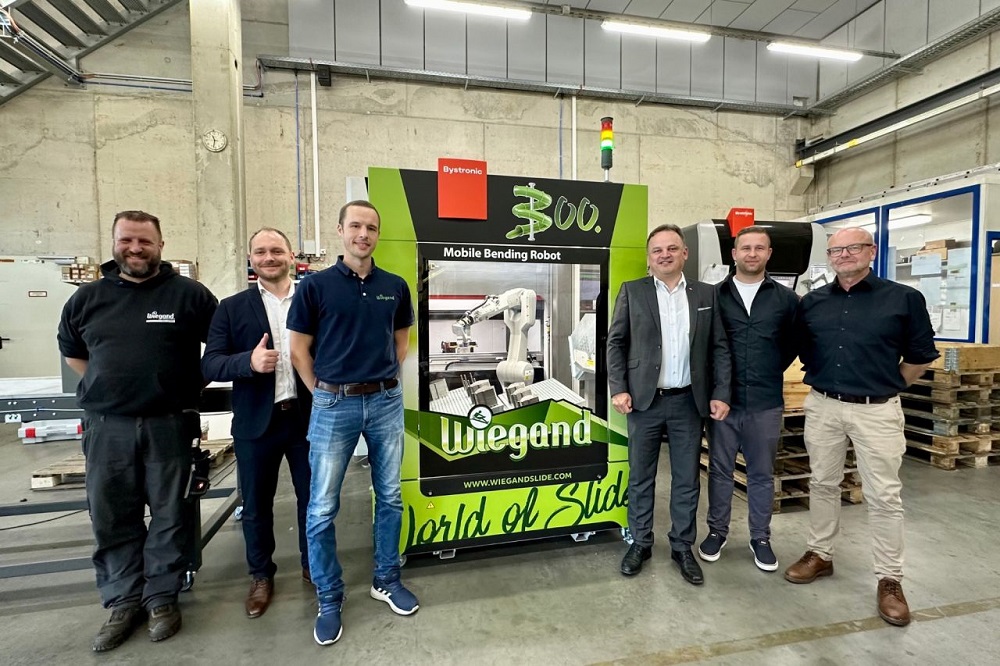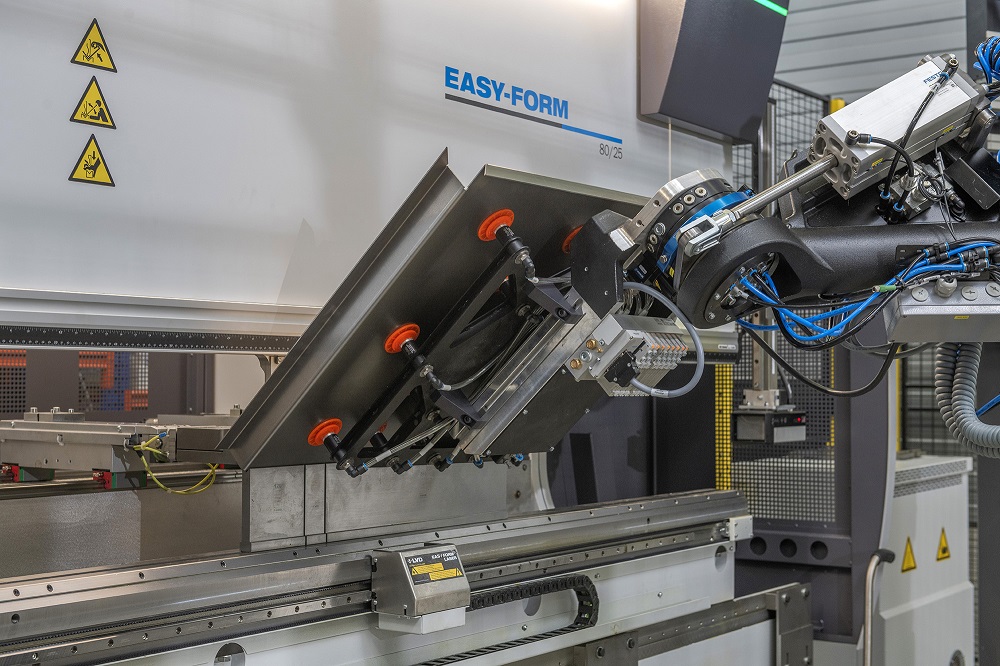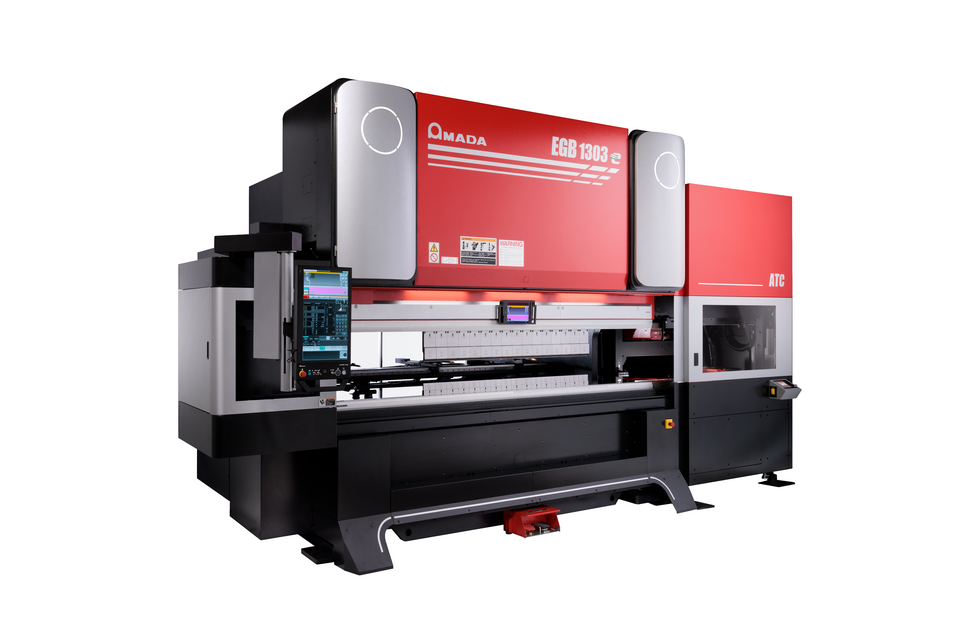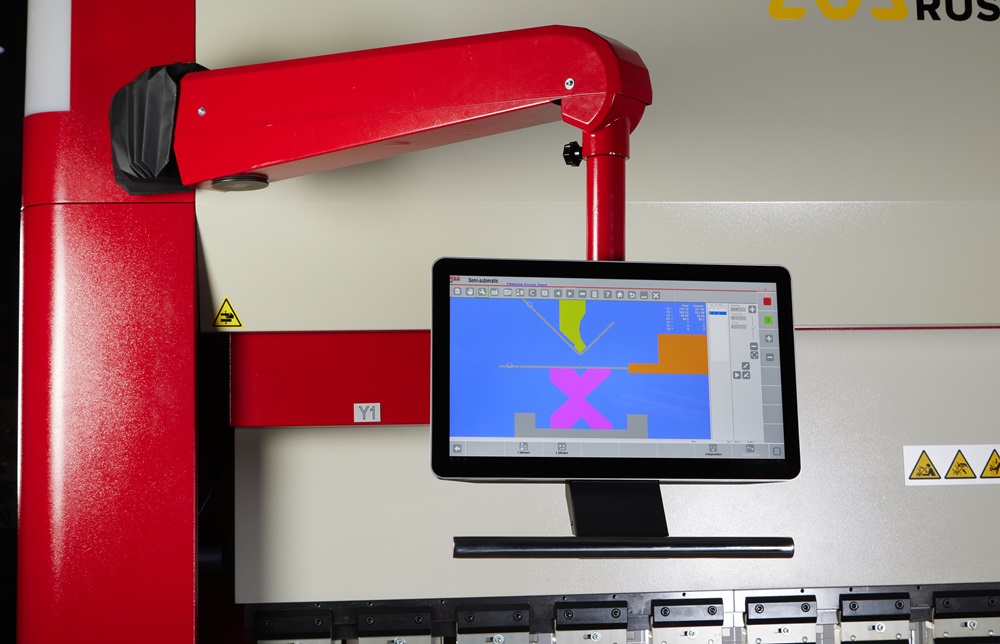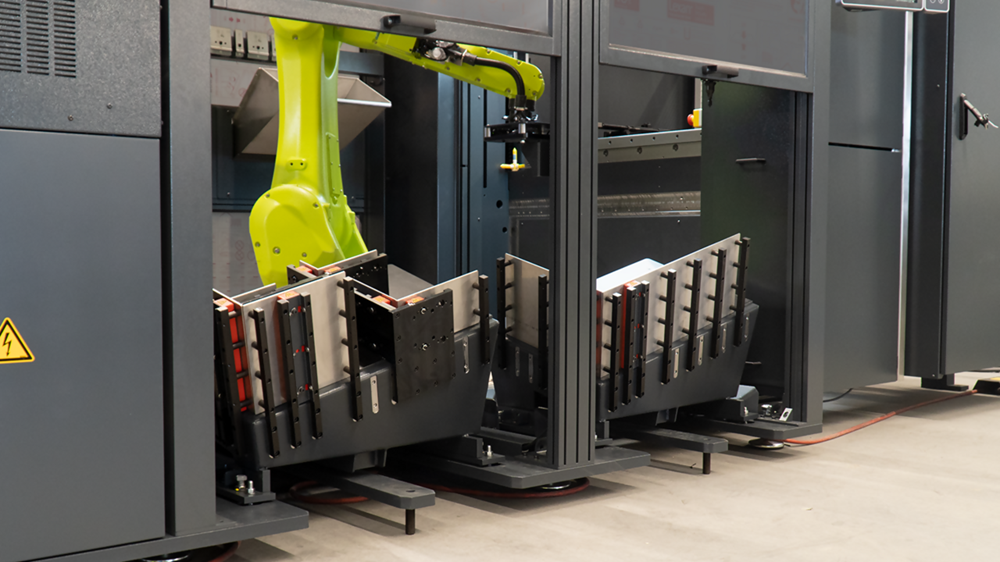In 2024, Bystronic says it delivered its 300thMobile Bending Cell:German company Josef Wiegand GmbH ordered the landmark automated system. Wiegand, a business based in Rasdorf, is known for its toboggan runs, slides for children and special events, as well as water slides, which it supplies all around the world.
Around 350 employees produce leisure equipment in Rasdorf, partly by hand. The products find use in the mountains of China, at European amusement parks, at American ski resorts, in shopping malls, on playgrounds, and even on cruise ships. Now the company has decided to automate certain manufacturing processes so it can react to customer requests better and faster.
“We were always satisfied with Bystronic press brakes and laser cutters, and the software was also impressive,” says CEO Hendrik Wiegand. “So it was clear that we had to go with another Bystronic. We’re particularly pleased to be the 300th recipient of this machine.”
Bystronic duly delivered the milestone Bystronic Mobile Bending Cell – along with a ByBend Star 80 and a Mobile Bending Robot – to Wiegand. The machine was presented in a small ceremony, specially finished in Wiegand’s colours.
“The delivery of the 300thMobile Bending Cell shows that Bystronic is meeting a clear need in the sheet metal processing industry,” says Marcel Fiedler, global product line manager for automation at Bystronic. “We’re happy to support our customers with their plans for growth.”
More information www.bystronic.com








